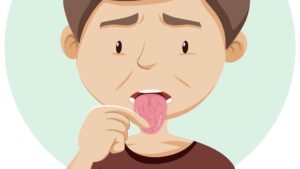At Krishees Dental, we emphasize the importance of maintaining good oral health, not just through regular brushing and flossing, but also by adopting a balanced diet. While many are aware of how sugary foods impact teeth, overeating, in general, can also harm your dental health in ways you might not expect. In this blog post, we’ll explore how overeating can affect your teeth and gums and share tips on how to protect your smile.
1. Tooth Decay: How Overeating Contributes to Cavities
Tooth decay is one of the most common dental problems, and overeating plays a significant role in its development. When you overeat, especially sugary, sticky, or carbohydrate-heavy foods, excess food particles remain in your mouth. These particles mix with bacteria to form plaque, a sticky film that builds up on your teeth. Over time, plaque produces acids that erode your tooth enamel, leading to cavities.
At Krishees Dental, we recommend limiting sugary foods and maintaining a healthy diet to prevent plaque buildup. Regular brushing and flossing after meals can help remove food particles and plaque, keeping your teeth healthier.
2. Acid Erosion: How Overeating Acidic Foods Damages Your Enamel
Overeating acidic foods can weaken your tooth enamel, the protective layer that shields your teeth. Acidic foods like citrus fruits, sodas, and coffee can erode enamel when consumed in large amounts. The acid breaks down the minerals in your teeth, leaving them more vulnerable to cavities, sensitivity, and discoloration.
At Krishees Dental, we advise reducing the intake of acidic foods and drinks. After consuming them, rinse your mouth with water to neutralize the acids and protect your enamel. Avoid brushing your teeth immediately after eating acidic foods, as this can cause further enamel wear.
3. Dry Mouth: A Consequence of Overeating Salty or Processed Foods
Overeating salty or processed foods can lead to dry mouth, a condition where your mouth doesn’t produce enough saliva. Saliva plays a crucial role in oral health, neutralizing acids and helping to wash away food particles and bacteria. When your mouth is dry, food particles and bacteria linger, increasing the risk of plaque buildup, tooth decay, and bad breath.
To combat dry mouth, drink plenty of water throughout the day to stay hydrated. Chewing sugar-free gum can also help stimulate saliva production. If dry mouth persists, visit Krishees Dental for professional advice and treatment options.


4. Gum Disease: The Impact of Overeating on Your Gums
Your gums are just as important as your teeth, and overeating can lead to gum inflammation and disease. Excess food intake, combined with poor oral hygiene, can cause plaque to build up along the gumline. This plaque irritates your gums, leading to gingivitis (gum inflammation). If left untreated, gingivitis can progress to more serious gum disease, such as periodontitis.
At Krishees Dental, we stress the importance of maintaining good oral hygiene and avoiding overeating to protect your gums. Brushing and flossing regularly, along with professional cleanings, help prevent gum disease and keep your gums healthy.
5. Bruxism: Stress from Overeating Can Lead to Teeth Grinding
Overeating can sometimes lead to stress or discomfort, causing some people to grind their teeth (bruxism). Bruxism exerts excessive pressure on your teeth, leading to enamel wear, tooth fractures, and jaw pain. The grinding also puts stress on your gums, which can make them more susceptible to inflammation and disease.
If you experience teeth grinding, especially after overeating, consult with one of our specialists at Krishees Dental. We can help you manage stress or provide treatments like mouthguards to protect your teeth from bruxism-related damage.


Tips to Protect Your Teeth from Overeating:
To protect your teeth from the harmful effects of overeating, follow these tips:
Eat smaller, balanced meals: Avoid overeating by sticking to smaller portion sizes. Include fruits, vegetables, lean proteins, and whole grains in your diet.
Limit sugary and acidic foods: Reduce your intake of sugary snacks and acidic foods to protect your enamel and prevent tooth decay.
Stay hydrated: Drink plenty of water to keep your mouth moist and help rinse away food particles and bacteria.
Brush and floss regularly: Brush your teeth twice a day and floss daily to remove plaque and food particles that can contribute to tooth decay and gum disease.
Use fluoride toothpaste: Fluoride helps remineralize enamel and protect your teeth from cavities.
Conclusion:
At Krishees Dental, we believe that protecting your teeth goes beyond regular check-ups. Adopting healthy eating habits and avoiding overeating are key to preventing tooth decay, gum disease, and other dental issues. By maintaining a balanced diet, staying hydrated, and practicing good oral hygiene, you can protect your smile for years to come.
If you have concerns about how overeating may be affecting your dental health. Our team of dental professionals is here to provide personalized care and help you achieve a healthy, beautiful smile. Book your appointment today at Krishees Dental and take the first step toward better oral health.


Leave a Reply